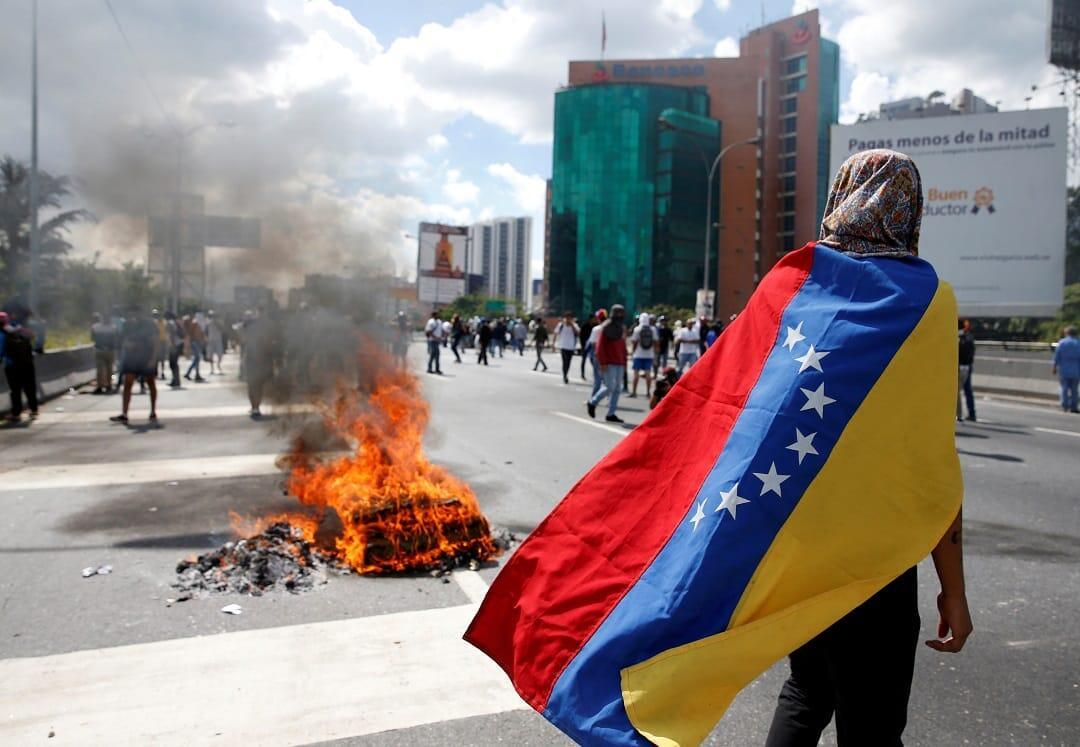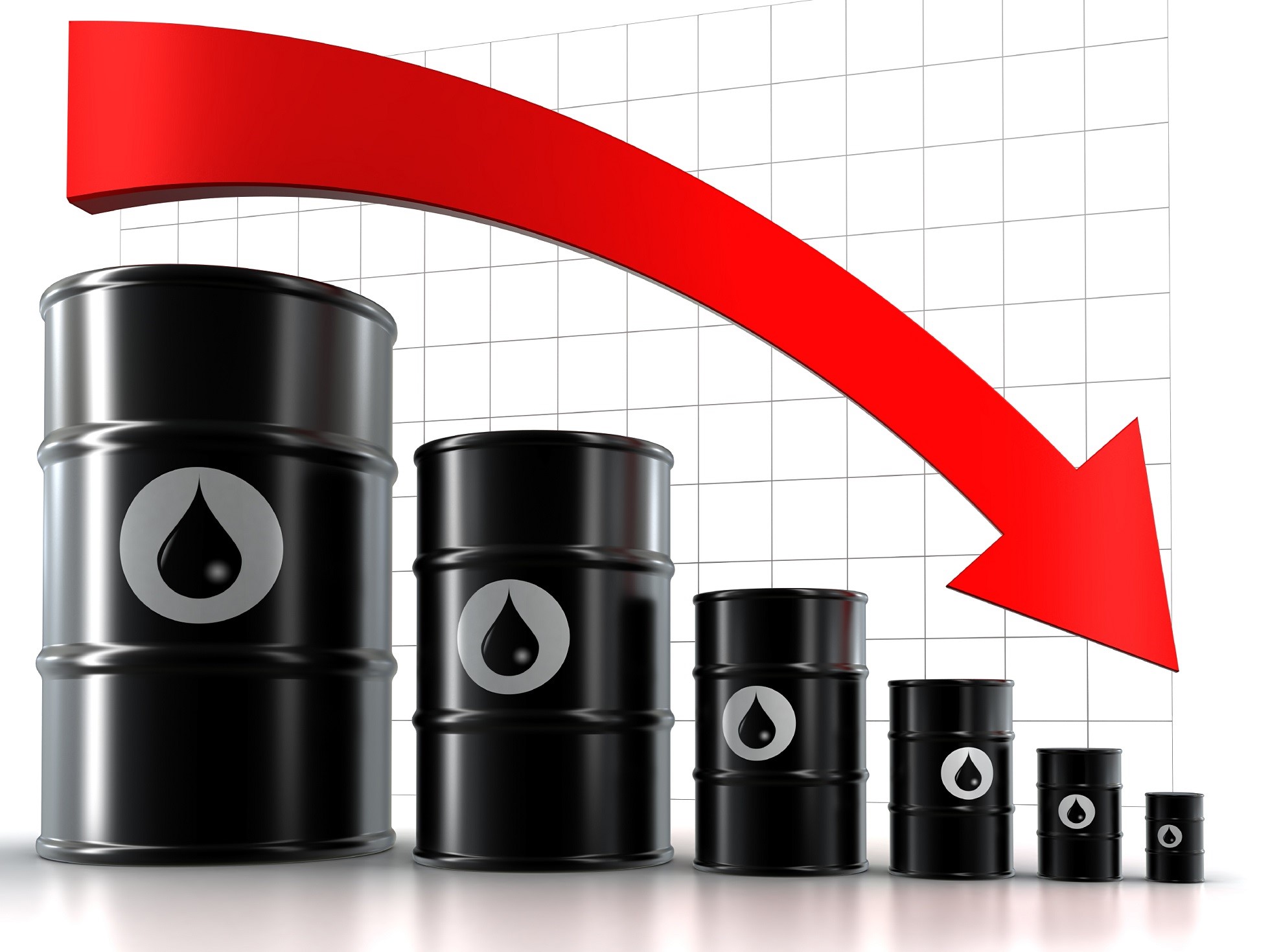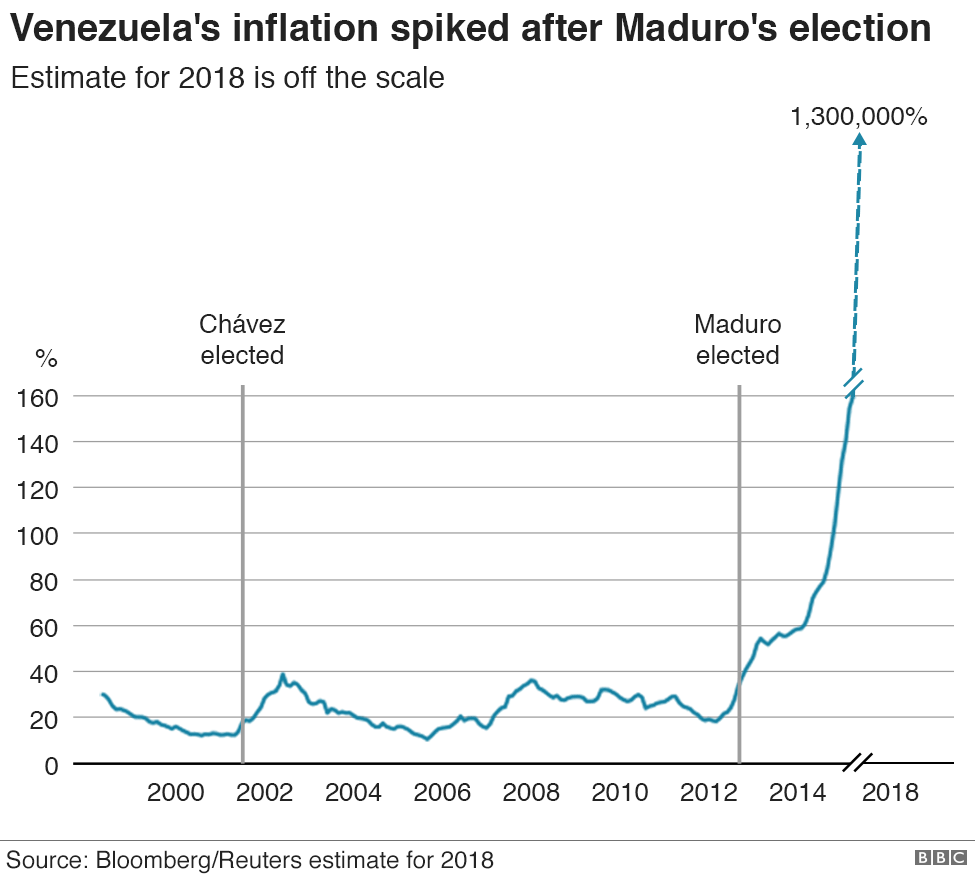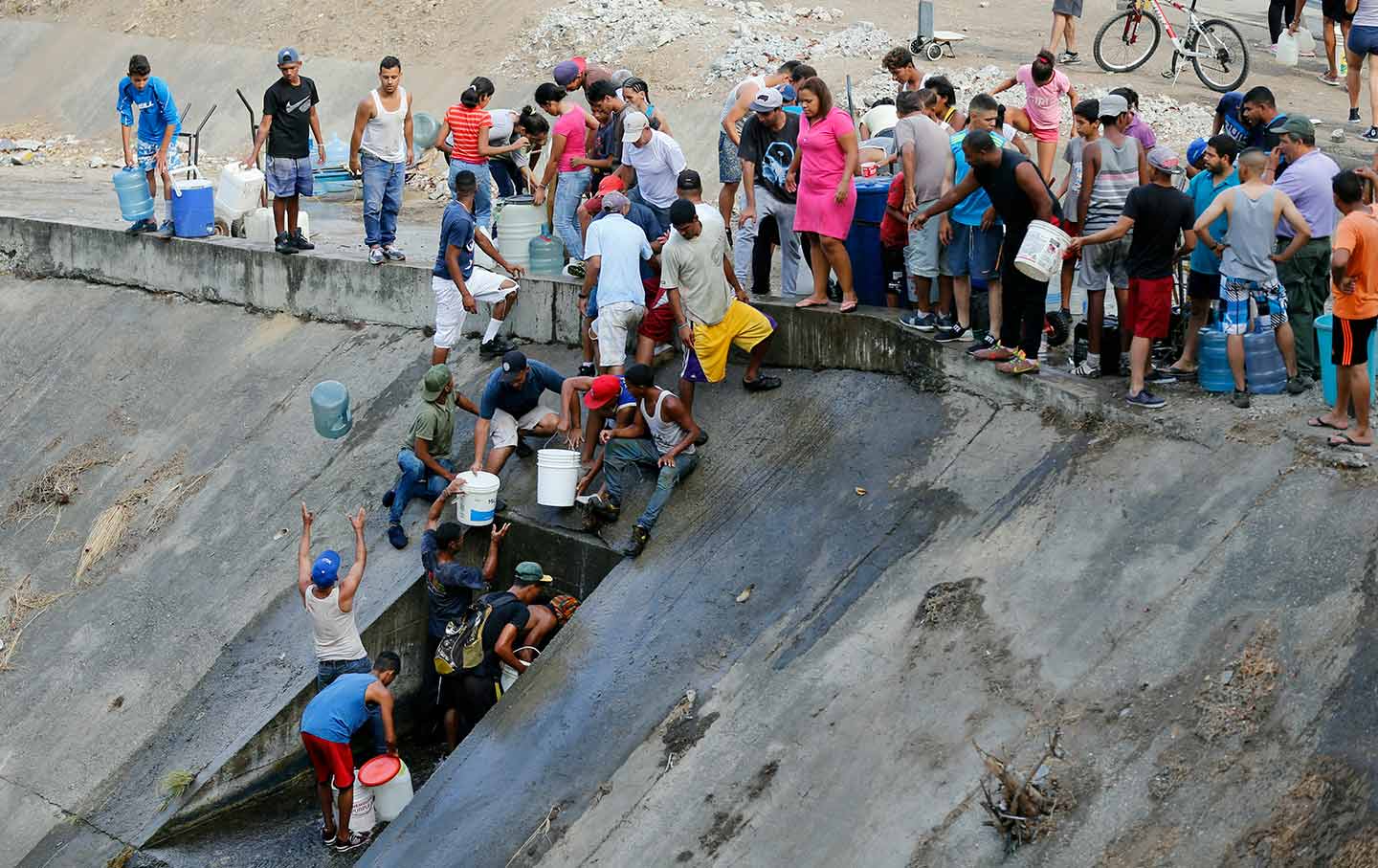Venezuela's economy depends mainly on the heavy oil it produces. This is processed in specialized refineries, concentrated in the Gulf of Mexico, in the state of Louisiana, although something is processed in China and India. By the year 2000, Venezuela was producing over three million barrels per day.
The strikes by PDVSA (Venezuelan oil company) in 2002 and 2003, organized by a front of businessmen, managers and engineers to stop Chavez's reforms, were followed by the massive dismissal of its administrators and technicians, which negatively affected production in more than half a million daily barrels.
Putting loyal chavismo groups without adequate training, to manage a very complex business in itself was deteriorating the capacity of the state company, which was also milked to finance social gifts and subsidize the consumption of gasoline in the Caribbean countries.
When Maduro assumed power, in 2012, production was at 2.4 million barrels per day to deteriorate much more from then on: in 2017 it was 1.5 million daily and last year it was reduced to one million barrels, when it was handed over to the Bolivarian Guard to administer it.
With the US financial boycott and the loss of control over its CITGO subsidiary in the United States, the prospects of the state company are darker. The collapse of the electrical system is associated with the same tendency to dismiss the technical and experienced body of the administration, with the consequent disorder and unpredictability in the maintenance of what was one of the most modern integral electrical systems in the world.
Under Chávez, inflation ranged between 20 and 40% per year, while imported products with oil at USD 130 a barrel abounded. In 2015, inflation was around 160%, the printing presses of the regime could not cope and millions of bills were imported, each time worth less.
In 2018 inflation ended at approximately 1.3 million%, because nobody can measure it, rationing the few assets available to the militants, because they did not even reach for the supporters of Maduro, quite alienated from the original Chavism. Each Venezuelan citizen has lost about 11 kilos of weight.
The impact that Maduro's incompetent and corrupt administration has had, it has been the destruction of more than half of the Venezuelan economy. According to figures published by the BBC, the economy contracted 16% in each of the last three years, to which it is necessary to add another 10% of contraction in 2014 and 2015.
The expropriations of the private sector that Chávez made from 2003, plus the terrible administration in the socialized sector, explain this enormous tragedy, marking one of the most acute economic contractions recorded in the history of mankind.
The consequences for public health have also been negative: it is estimated that there are more than 600,000 cases of malaria, when this disease was practically controlled in Venezuela. Diseases such as measles threaten to become endemic, with more than 3,500 cases reported in 2018.
The Inter-American Development Bank (IDB) has a plan to resuscitate Venezuela's economy when Maduro leaves
The Inter-American Development Bank (IDB) is willing to work with the government of Juan Guaidó to recover the potential of the Venezuelan economy. It is estimated that USD 4 billion a year will be needed to relaunch the Venezuelan oil sector. But priorities are clear. First? Address the humanitarian problem. Second? "Restore the conditions so that the productive apparatus of the country works fairly well".
Although Venezuela remains officially a shareholder of the Inter-American Development Bank (IDB), it has been more than 15 months since Nicolás Maduro's regime paid the IDB the commitments it had acquired. In May 2018 the default reached such a point (212.4 million dollars) that this multilateral bank automatically suspended all relationship with the regime: disbursements on loans, missions to the country, donations for projects ... The relationship was frozen.
The IDB also criticizes the fact that Venezuela's fiscal deficit is 25%, that 56% of households do not have the capacity to buy food, and that the stock of flours and oils does not meet the demand of more than a week. "That is the kind of reality that President Guaidó is going to find," stresses the IDB president.
But there is an even more "impressive" fact, as Moreno describes it. And it is that "94% of Venezuelans are in poverty," he says. A harsh reality in an economy that today barely adds USD 100,000 million of GDP and with a debt of almost USD 145,000 million, according to IDB data.
To resuscitate the Venezuelan economy, this multilateral bank has clear priorities. The first, address the humanitarian problem. The second, to restore the conditions so that the productive apparatus of the country works fairly well. "In the case of electricity, almost 50% of the generation capacity that Venezuela has it is paralyzed for different reasons.
As for the plan to relaunch the oil sector, crucial in the Venezuelan economy, this is to invest "at least USD 4,000 million a year, to continue producing the same million barrels they currently have." "If you want to raise that production, you would have to significantly increase those investments."
And although the plan is designed, the slogan is clear: "You can not do everything at the same time, you have to start sector by sector. There has to be a stabilization process in the first year, and then gradually go on doing more things.
The strikes by PDVSA (Venezuelan oil company) in 2002 and 2003, organized by a front of businessmen, managers and engineers to stop Chavez's reforms, were followed by the massive dismissal of its administrators and technicians, which negatively affected production in more than half a million daily barrels.
Putting loyal chavismo groups without adequate training, to manage a very complex business in itself was deteriorating the capacity of the state company, which was also milked to finance social gifts and subsidize the consumption of gasoline in the Caribbean countries.
When Maduro assumed power, in 2012, production was at 2.4 million barrels per day to deteriorate much more from then on: in 2017 it was 1.5 million daily and last year it was reduced to one million barrels, when it was handed over to the Bolivarian Guard to administer it.
With the US financial boycott and the loss of control over its CITGO subsidiary in the United States, the prospects of the state company are darker. The collapse of the electrical system is associated with the same tendency to dismiss the technical and experienced body of the administration, with the consequent disorder and unpredictability in the maintenance of what was one of the most modern integral electrical systems in the world.
Under Chávez, inflation ranged between 20 and 40% per year, while imported products with oil at USD 130 a barrel abounded. In 2015, inflation was around 160%, the printing presses of the regime could not cope and millions of bills were imported, each time worth less.
In 2018 inflation ended at approximately 1.3 million%, because nobody can measure it, rationing the few assets available to the militants, because they did not even reach for the supporters of Maduro, quite alienated from the original Chavism. Each Venezuelan citizen has lost about 11 kilos of weight.
The impact that Maduro's incompetent and corrupt administration has had, it has been the destruction of more than half of the Venezuelan economy. According to figures published by the BBC, the economy contracted 16% in each of the last three years, to which it is necessary to add another 10% of contraction in 2014 and 2015.
The expropriations of the private sector that Chávez made from 2003, plus the terrible administration in the socialized sector, explain this enormous tragedy, marking one of the most acute economic contractions recorded in the history of mankind.
The consequences for public health have also been negative: it is estimated that there are more than 600,000 cases of malaria, when this disease was practically controlled in Venezuela. Diseases such as measles threaten to become endemic, with more than 3,500 cases reported in 2018.
The Inter-American Development Bank (IDB) has a plan to resuscitate Venezuela's economy when Maduro leaves
The Inter-American Development Bank (IDB) is willing to work with the government of Juan Guaidó to recover the potential of the Venezuelan economy. It is estimated that USD 4 billion a year will be needed to relaunch the Venezuelan oil sector. But priorities are clear. First? Address the humanitarian problem. Second? "Restore the conditions so that the productive apparatus of the country works fairly well".
 Luis Alberto Moreno: The IDB has not had relations with Maduro for 15 months (Photo: WEF) |
Although Venezuela remains officially a shareholder of the Inter-American Development Bank (IDB), it has been more than 15 months since Nicolás Maduro's regime paid the IDB the commitments it had acquired. In May 2018 the default reached such a point (212.4 million dollars) that this multilateral bank automatically suspended all relationship with the regime: disbursements on loans, missions to the country, donations for projects ... The relationship was frozen.
The IDB also criticizes the fact that Venezuela's fiscal deficit is 25%, that 56% of households do not have the capacity to buy food, and that the stock of flours and oils does not meet the demand of more than a week. "That is the kind of reality that President Guaidó is going to find," stresses the IDB president.
But there is an even more "impressive" fact, as Moreno describes it. And it is that "94% of Venezuelans are in poverty," he says. A harsh reality in an economy that today barely adds USD 100,000 million of GDP and with a debt of almost USD 145,000 million, according to IDB data.
To resuscitate the Venezuelan economy, this multilateral bank has clear priorities. The first, address the humanitarian problem. The second, to restore the conditions so that the productive apparatus of the country works fairly well. "In the case of electricity, almost 50% of the generation capacity that Venezuela has it is paralyzed for different reasons.
As for the plan to relaunch the oil sector, crucial in the Venezuelan economy, this is to invest "at least USD 4,000 million a year, to continue producing the same million barrels they currently have." "If you want to raise that production, you would have to significantly increase those investments."
And although the plan is designed, the slogan is clear: "You can not do everything at the same time, you have to start sector by sector. There has to be a stabilization process in the first year, and then gradually go on doing more things.





